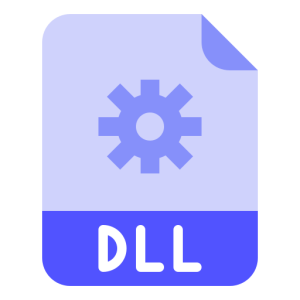Description
kernel32.dll is a dynamic link library (DLL) file that is a fundamental component of the Windows operating system. It contains numerous functions and resources that enable the proper execution and management of applications running on a Windows platform. The kernel32.dll file is responsible for providing essential system services and functions, making it a critical part of the Windows operating system.
Purpose and Functionality
As a core system library, the kernel32.dll file performs various essential functions, including:
- Process and Memory Management: The DLL manages the creation, termination, and memory allocation of processes and threads. It provides functions for allocating and freeing memory, as well as managing virtual memory and address space.
- File Operations: The kernel32.dll handles file and file I/O operations. It provides functions for opening, closing, reading, and writing to files, as well as file attribute manipulation and directory management.
- Error Handling and Exception Handling: This DLL is responsible for handling critical errors and exceptions that occur during program execution. It provides functions for handling system and application errors, allowing programs to gracefully recover from errors and avoid crashes.
- Thread Synchronization and Management: The DLL offers functions for creating, managing, and synchronizing threads within an application. It allows for parallel execution of tasks, efficient synchronization of threads, and coordination of multi-threaded applications.
- Dynamic Memory Management: kernel32.dll provides functions for dynamic memory allocation using functions such as HeapAlloc and HeapFree, allowing programs to dynamically allocate and manage memory during runtime.
- Date and Time Operations: The DLL offers functions for retrieving and manipulating system time and date information, allowing programs to interact with and utilize time and date data accurately.
- System Information Retrieval: The kernel32.dll provides functions to retrieve information about the system, such as the computer name, CPU information, operating system version, and available system resources.
- Hardware Abstraction: The DLL abstracts hardware details and provides functions for accessing system hardware and device drivers. It allows programs to interact with hardware devices without needing to understand the low-level hardware implementation details.
Common Use Cases
The kernel32.dll file is utilized by virtually all Windows applications and is involved in various aspects of program execution and system management. Some common use cases for kernel32.dll include:
- Application Execution: Whenever a Windows application is launched, kernel32.dll is loaded into memory to provide essential system services and facilitate the execution and management of the application.
- System Programming: Developers utilize kernel32.dll to access system services and perform low-level operations, such as memory management, file operations, and thread synchronization, in their programs.
- Compatibility and Interoperability: The kernel32.dll file ensures compatibility and interoperability between applications and the Windows operating system by providing a standard set of functions and resources that applications can rely on.
- Error Handling and Debugging: The DLL is involved in error handling and provides functions for handling application and system errors. It allows developers to debug their applications and handle errors gracefully.
- System Information Retrieval and Monitoring: Applications can use kernel32.dll to retrieve information about the system, monitor system resources, and gather system performance statistics for various purposes.

